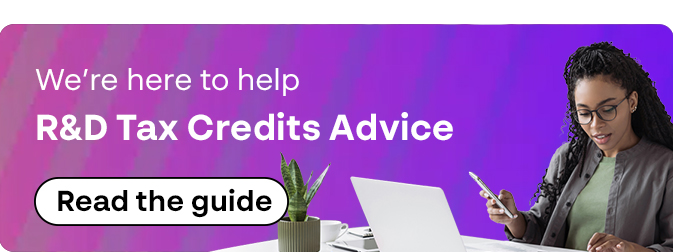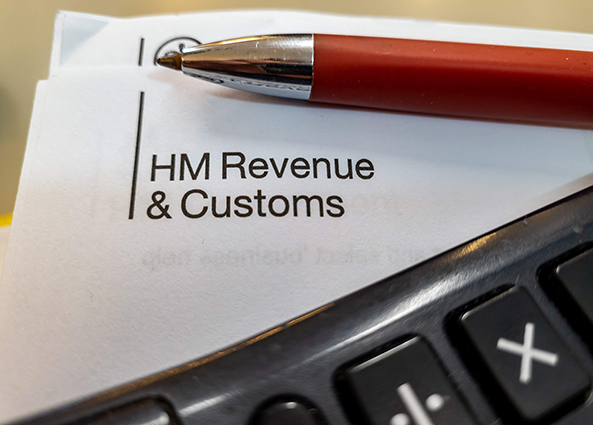A Tale of Two Software R&D Tribunals
23 July 2024
by Jonathan Kennedy, Operations Manager at Visiativ
Last week, we analysed the potential impact of a landmark software R&D tax tribunal (Get Onbord Limited vs HMRC) on HMRC’s approach to rejecting claims in enquiry. This is HMRC’s approach to rejecting claims on the basis that they are not R&D for tax purposes.
Coincidentally, another tribunal ruling was released relating to a separate software R&D tax case (Tills Plus Limited vs HMRC), which HMRC won, the tribunal agreeing with HMRC that the project did not amount to R&D for tax purposes.
Given what constitutes R&D for tax purposes is a matter open to interpretation, the differing conclusions of these cases may cause software development companies to be concerned that there are inconsistencies with the First-Tier Tax Tribunal’s judgement, creating further uncertainty with the R&D tax scheme.
Below, we explain why this is not the case, highlighting the key differences between the cases, which provide lessons for future R&D tax relief claims.
Tills Plus vs HMRC: Case Summary
In the Tills Plus case, the company engaged a subcontractor, iWond, to develop technology for EPOS systems in the hospitality industry. The case hinged on two main issues: whether the payment to the subcontractor qualified as R&D expenditure and whether the work undertaken by the subcontractor constituted R&D.
1. Qualifying Payment:
- Background: Tills Plus entered into a contract for services with iWond (a company based in Iran) and iWond issued invoices to Tills Plus. Tills Plus, owned by Mr. Kosari, received funding from Mr. Fatoorehchi, a resident of Iran. Due to the difficulties in moving money in and out of Iran, Mr Fatoorehchi paid iWond directly and made a loan to Mr Kosari who then made a loan (recorded on a director’s loan account) to Tills Plus.
- HMRC’s Argument: HMRC argued that the subcontractor payment did not qualify as it did not come directly from Tills Plus’s bank account, relying on Section 1133(1) CTA 2009 which (at the time) defined a subcontractor payment as “a payment made by a company to another person (the ‘sub-contractor’) in respect of research and development contracted out by the company to that person”
- Tribunal’s Decision: The tribunal ruled that a wider interpretation of the legislation was appropriate, concluding that the statutory context that mattered is that R&D expenditure is to be incurred by the company, not the specific method of payment. Thus, the payment to iWond was deemed a qualifying payment.
Although the above matter did not feature within the Get Onbord vs HMRC tribunal, it does provide clarification that R&D expenditure can potentially qualify even when it’s not a direct payment from the company to a third party.
2. R&D Activities:
- Background: Tills Plus assumed the tribunal would only address the qualifying payment issue and was unprepared to defend the R&D nature of the subcontractor’s work.
- Inconsistencies: Descriptions of the project varied significantly over time. Initially described as developing an EPOS platform by the initial reports, invoices and subcontractor agreement, a later report (provided by Dr Zade, the competent professional from iWond) referred to the objective of the R&D being a multi-modal analysis tool for customer reviews, which caused confusion regarding the nature of the R&D undertaken.
- Lack of Competent Professional Testimony: Although it was accepted by the judge that the later report describing the multi-modal analysis tool would qualify as R&D, the inconsistencies with the underlying invoices and subcontractor agreement (for an expenditure covering almost £2.5m) were described as “extraordinary” by the judge and so the judge could not agree that the later report could be relied upon. Without Dr. Zade available for cross-examination, the inconsistences could not be adequately explained by the company.
- Tribunal’s Decision: The tribunal concluded that the inconsistent project descriptions and lack of detailed references in contracts and invoices undermined the claim. They ruled that the work did not qualify as R&D.
Comparative Analysis:
A comparison between the Tills Plus and Get Onbord cases reveals two critical factors influencing the tribunal outcomes:
1. Consistency in Project Descriptions:
Tills Plus had inconsistent descriptions and lack of clear documentation led to confusion and undermined their case. In contrast, Get Onbord maintained clear, consistent, and detailed descriptions and testimony from Mr Cahill (the competent professional), effectively communicating the project’s scope and objectives.
2. Role of Competent Professional Testimony:
Tills Plus were unable to provide a competent professional for cross-examination, leaving key technical aspects unexplained as opposed to Get Onbord who benefited from Mr. Cahill’s expert testimony, providing detailed explanations and credibility.
Recommendations:
Get Onbord’s case highlights an important point: despite their lack of contemporaneous documentation, such as planning documents and correspondence regarding the development process, they succeeded because they provided a competent professional who could testify to the project’s specifics. This underscores the critical role of expert testimony in substantiating R&D claims.
In contrast, Tills Plus Limited’s case, which pertained to accounting periods ending 30 November 2018 and 30 November 2019, illustrates the lengthy duration R&D disputes can take to reach a tribunal. This delay makes it challenging for companies to ensure that the competent professionals who worked on the projects are still available for cross-examination at the tribunal. Therefore, we recommend that companies maintain robust and compliant R&D documentation throughout their projects. This proactive approach ensures that they can effectively demonstrate their R&D activities to HMRC or a tax tribunal in the event of an enquiry.
Our Tax Director Doug Reid, previously provided tips for documenting R&D activities – read on for further information that could protect your R&D tax claim.
If you have any questions relating to R&D tax relief or Enquiry Defence , please get in touch with VISIATIV, and a representative will get back to you to discuss your unique needs and explain how we can assist.








